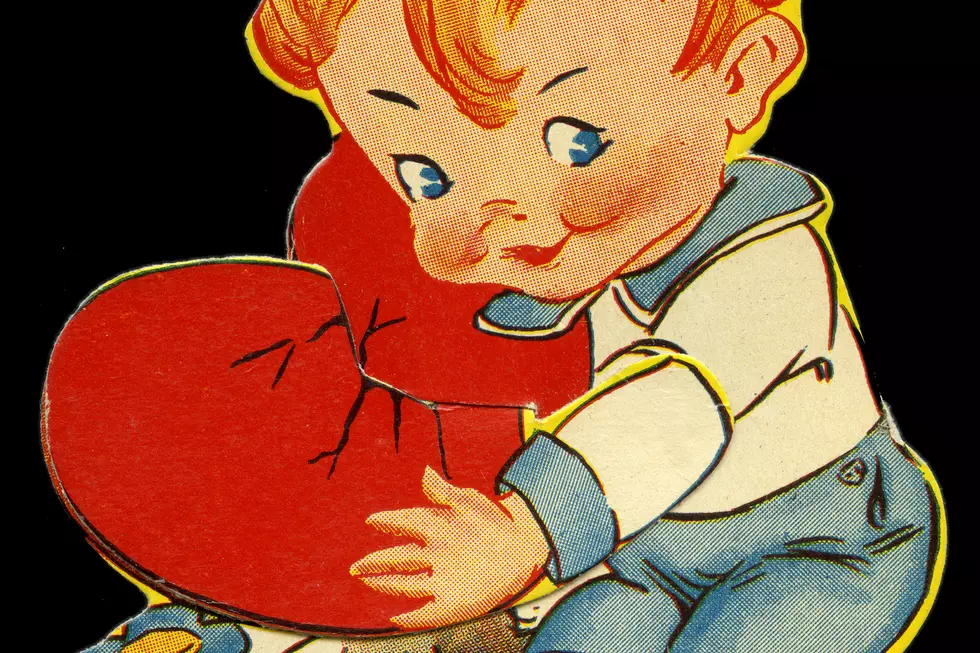
10 Weirdest Bands Signed in the Post-Nirvana Gold Rush
Teenage angst certainly paid off well for Nirvana and their post-Sub Pop label, DGC Records, and following the success of 'Nevermind,' virtually ever major record label around went in search of its own modern-rock unit shifters. Thing was, even with a weatherman (OK, some typically bewildered A&R dudes), it wasn't easy to know which way the musical winds blew, so many labels just started inking deals with every supposedly hip band in sight and hoped for the best. Sometimes that worked out -- groups like the Smashing Pumpkins, Radiohead and the Flaming Lips can thank the post-'Nevermind' boom for getting signed -- but more often than not, the result was mass confusion. With that in mind, we give you the 10 Weirdest Bands Signed In the Post-Nirvana Gold Rush:
- 10
The Butthole Surfers
These Texas-fried freaks had released a half-dozen records on indie labels before inking with Capitol Records for 1993's 'Independent Worm Saloon.' The Surfers must've spent a pretty penny on producer John Paul Jones -- yeah, the one from Led Zeppelin -- but the disc didn't sell. Its follow-up, 'Electriclarryland,' actually did, cracking the Top 40 and spawning the No. 1 modern-rock hit 'Pepper,' but internal issues soon took a toll, and the Surfers have issued only one record since.
- 9
Daniel Johnston
Kurt Cobain served as a walking billboard for Daniel Johnston, frequently wearing the singer-artist's "Hi, How Are You?" frog on a t-shirt while doing promotions. The international exposure may have helped Johnston get a major-label deal -- he signed with Atlantic for 1994's 'Fun' -- but it sure didn't help him sell any records. Released while the schizophrenic Johnston was in a mental institution, 'Fun' was a commercial disaster, and within two years, he was dropped.
- 8
Jesus Lizard
The Jesus Lizard reached a wider audience thanks to their 1993 split single with Nirvana, 'Puss/Oh, the Guilt' (Nirvana gave them the A-side), and the fearsome Chicago foursome linked up with Capitol Records for a pair of discs: 1996's 'Shot' and 1998's 'Blue.' But neither shifted many units, and soon, they were back to rocking with the indies.
- 7
The Afghan Whigs
Expectations were high for beloved indie act Afghan Whigs --perhaps too high. They linked up with major labels twice, parting ways with Elektra after 1993's 'Black Love,' which was a commercial disappointment, and hooking up with with Columbia for 1998’s '1965,' which was an even a bigger one.
- 6
Cell
Sonic Youth's Thurston Moore was given carte blanche as an A&R man for DGC after convincing the label to go after Nirvana, but the New York tastemaker wasn't able to strike gold twice. Instead, he championed bands like Cell, who were lumped into the grunge genre at the time but had a sound more in line with a harder-edged version of '80s jangly college rock. Cell released two long-forgotten albums on DGC, 'Slo*Blo' and 'Living Room,' before calling it a day ... and landing on our 10 Weirdest Bands Signed In the Post-Nirvana Gold Rush list nearly two decades later.
- 5
Medicine
"The early 90's were a magical time in that one could glean large sums of money from major labels by making weird indie music," Medicine's Brad Laner once said, and he would know. Rick Rubin's Def Jam signed a three-album deal with the Los Angeles-based post-shoegaze act, whose overdriven, metallic take on the genre likely boosted sales for the earplugs industry more than the music biz.
- 4
Drive Like Jehu / Rocket From the Crypt
With Interscope in hot pursuit of San Diego's Rocket from the Crypt, guitarist John "Speedo" Reis leveraged a deal for his Drive Like Jehu side project as well, resulting in both bands dropping a pair of major-label discs in the mid-'90s. RFTC used the bigger budget to spend two months recording 'Scream, Dracula, Scream!,' the most ambitious album of their career, but neither they nor Jehu met expectations, and soon, both were dropped.
- 3
Unsane
One contractual obligation of the mid-'90s Atlantic-Matador label merger required that six of the indie's releases each year be distributed by the major, and Unsane's 'Total Destruction' was one of the first to get the push. Not that it helped -- Atlantic's reps were likely too bewildered to properly market the disc, which lived up to its name more than it did its sales expectations.
- 2
Royal Trux
Perpetrators of perhaps the greatest rock 'n' roll swindle of all time, Stones-loving noise duo Royal Trux inked a three-disc, seven-figure deal with Virgin, bought a green Jaguar (and a bunch of heroin) with the money, turned in two discs of virtually unlistenable skronk-noise boogie recorded on the cheap, then got paid off to leave. The third disc, 'Accelerator,' dropped on their former label, Drag City.
- 1
The Boredoms
"The next big thing is going to be a Japanese experimental noise band," said nobody ever -- but still the Boredoms managed a deal with Warner Music Group and its U.S. subsidiary Reprise Records in the early '90s. They released the noise-bomb insanity known as 'Pop Tatari' before hitting the road as an opener on Nirvana's ill-fated 'In Utero' tour, utterly confusing concert early birds all across America.
More From Diffuser.fm









